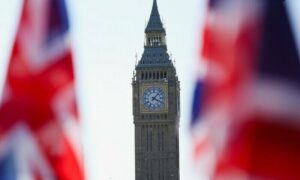KARACHI: Frequent policy changes, low economic growth and imports, and lack of planning are among the key challenges threatening the country’s economy, according to leading bankers quoted in A.F. Ferguson & Co.’s latest publication, Road to Sustainability 2024.
Top banking leaders voiced serious concerns about economic policies and reforms, highlighting the need for consistent and sustainable strategies to address these challenges.
“Lack of long-term planning, frequent policy changes, and inefficient public sector enterprises are major reasons for Pakistan’s economic challenges,” said Shoaib Mumtaz, president and CEO of MCB Bank Limited.
Khurram Shahzad Khan, president and CEO of Habib Metropolitan Bank Limited, pointed to global inflationary pressures impacting the country’s import bill for energy and commodities.
Say economic recovery requires structural reforms, policy consistency
“While the current account is in control, it came at the cost of substantial import curtailment, with consequent impacts on GDP growth,” he said, adding that monetary corrections and markup rate adjustments have also negatively affected businesses.
Despite improvements in some macroeconomic indicators, many bankers and economists remain sceptical about the economy’s future. Rising poverty and unemployment continue to challenge consumption, which is crucial for economic growth.
“Pakistan’s poverty index is 40pc (historically 20pc), vs India and Bangladesh’s 15pc to 20pc. Another 20pc borderline segment lives with very compressed income levels. Corresponding lack of purchasing power may create major domestic demand challenges,” said Salim Raza, a former governor of the State Bank of Pakistan (SBP).
Mr Raza emphasised that sustained growth of 4-5pc is essential for meaningful economic improvements. The current 2.5pc growth rate is suboptimal and fails to impact per capita income due to population increases, he added.
“There has been a lack of consistent and sustainable economic policy interventions, leading to perennial challenges on multiple fronts,” said Yousaf Hussain, president and CEO of Faysal Bank Limited.
SBP Deputy Governor Dr Inayat Hussain said that in the past, high growth rates have usually triggered considerable balance-of-payment deficits and foreign exchange imbalances, hence critical to address structural deficiencies.
Shoaib Mumtaz called for a unified approach between monetary and fiscal policies to drive recovery. Implementing long-term plans, increasing investor confidence and effectively marketing Pakistan’s industries are crucial for economic revival, he said.
However, Muhammad Jawaid Iqbal, president and CEO of United Bank Limited, said that the steps undertaken by SBP have had a positive impact with a significant reduction in inflation and stabilisation of the currency.
Rehmat Ali Hasnie, president and CEO of the National Bank of Pakistan, said that the consistency of economic policies is critical to provide a sustainable path to recovery and attract both local and foreign investments. “We must focus on structural adjustments in the short-medium term with a clear roadmap for meaningful economic growth,” he said.
Dr Ishrat Husain, a former SBP governor, said that investments could only be attracted through consistent forward-looking economic policies with a time-bound roadmap of medium- to long-term interventions.
Published in Dawn, November 17th, 2024







